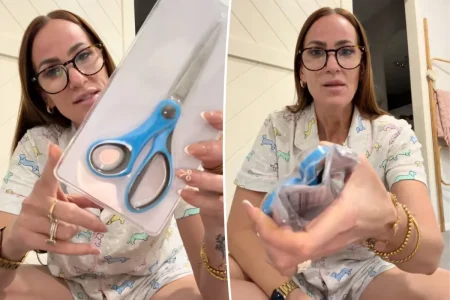Breaking Free from Toxic Relationships: Lessons from Dear Abby
In today’s world, many individuals find themselves trapped in harmful relationships that take a severe toll on their mental and physical well-being. The popular advice column “Dear Abby,” penned by Abigail Van Buren (Jeanne Phillips), provides guidance to those struggling with such situations. Two particular cases highlight the challenges many face: one involving an abusive relationship with an alcoholic partner, and another concerning repeated body-shaming from in-laws. These scenarios reflect broader societal issues where emotional abuse, manipulation, and inappropriate comments can severely impact a person’s self-worth and mental health.
The first letter comes from someone who recently escaped a physically and verbally abusive relationship with a partner described as having multiple concerning traits: alcoholism, narcissism, bipolar disorder, and sociopathic tendencies. Despite this concerning profile, which included a criminal record for animal cruelty, the letter writer remains emotionally attached to this person even after being repeatedly kicked out of their shared home and learning that the partner had already moved someone else in. The writer expresses feeling that their identity has been consumed by this relationship, leaving them emotionally devastated despite now receiving professional help from both a psychiatrist and therapist. Abby’s response emphasizes the importance of continuing treatment to break free from this unhealthy attachment, suggesting that the letter writer is fixated on someone incapable of genuine love.
The second letter presents a different but equally troubling situation involving a 66-year-old woman who has endured decades of inappropriate comments about her naturally slender physique from her in-laws. At 5-foot-2 and 108 pounds, this woman has maintained the same healthy weight throughout her 39 years of knowing her husband’s family, yet they persistently tell her to “put meat on her bones.” Such comments reflect a troubling double standard in how society approaches body image—while making negative comments about overweight individuals is increasingly recognized as inappropriate, thin-shaming continues to be socially acceptable in many circles. The letter writer has reached her breaking point after decades of tolerating these remarks. Abby advises a direct approach, suggesting that after so many years of patience, the writer is entitled to firmly establish boundaries and call out this behavior as unacceptable.
Both cases illustrate how difficult it can be to establish and maintain healthy boundaries in long-term relationships. The first letter writer became entangled with someone showing clear warning signs of abusive behavior, yet emotional attachment made it nearly impossible to leave despite objectively recognizing the harmful nature of the relationship. Similarly, the second letter writer endured decades of body-shaming comments before reaching the point of considering a direct confrontation. These situations highlight how our culture often socializes people, particularly women, to prioritize harmony and others’ feelings above their own comfort and mental well-being. Breaking free from these patterns requires courage, support, and often professional guidance to rebuild one’s sense of autonomy and self-worth.
What makes Dear Abby’s advice valuable in both scenarios is the balance between empathy and directness. For the person leaving an abusive relationship, Abby acknowledges the powerful emotional pull of such attachments while emphasizing the necessity of continued therapeutic intervention. Rather than simply telling the person to “move on”—advice that rarely works for those in trauma bonds—she recognizes the deep psychological hooks that abusive relationships can embed. For the woman facing body-shaming, Abby validates her right to stand up for herself after decades of tolerance, offering practical language for confronting the behavior. This approach recognizes that setting boundaries is not about creating conflict but rather about establishing respect and protecting one’s dignity.
The broader message from these exchanges speaks to the importance of recognizing one’s intrinsic value outside of relationship dynamics. Whether dealing with an abusive partner or disrespectful in-laws, both letter writers are at points where they must reclaim their sense of self. For those recovering from abusive relationships, this often means working through trauma with professional help and rebuilding a life centered on their own well-being rather than seeking approval or love from those who cannot provide it healthily. For those facing ongoing criticism about their appearance or other personal attributes, it means developing the courage to reject others’ inappropriate judgments and assert their right to basic respect. In both cases, Dear Abby offers not just advice but affirmation that these individuals deserve better treatment than what they’ve received, empowering them to expect more from their relationships and themselves.













